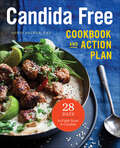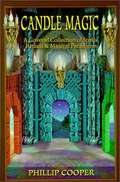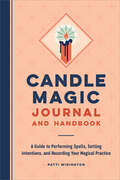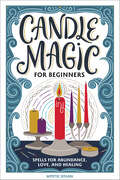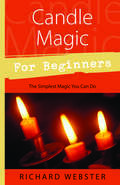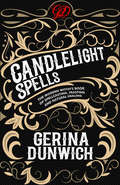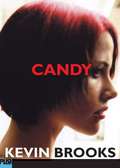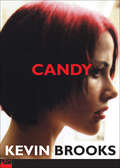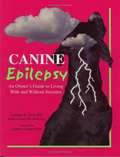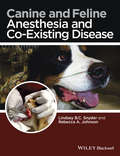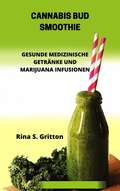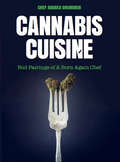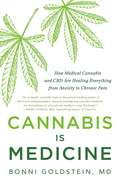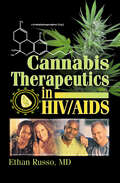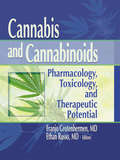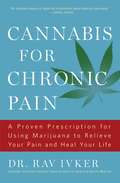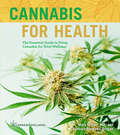- Table View
- List View
Candida Free Cookbook and Action Plan: 28 Days to Fight Yeast & Candida
by Sondi BrunerTreat candida with healing recipesIf you know someone who suffers from candida, you know it's a dangerous yeast that can take over your body, causing you to gain weight, feel pain, and be exhausted. But studies have proven that even the worst candida infections can be cured with the right diet and eating habits.The Candida Cookbook and Action Plan offers everything you need to eliminate candida from your body and get your health back. Doctor's visits and prescription medication are not the only hope for candida infections. Start cooking with The Candida Cookbook and Action Plan and feel for yourself how food really can be medicine.Features include:Clear explanations of the causes and symptoms of candidaA guide to the most common dietary triggersA month-long action plan to eliminate problem foods, broken down into a 3-day cleanse and a 3-week meal planShopping lists for the entire month so you buy only what you need for breakfast, lunch, dinner, and snacksOver 125 delicious recipes, including a chapter of reintroduction recipes
Candle Magic
by Phillip CooperFor centuries people have used candles to light their homes and brighten their lives. They have been used in churches, temples, and religious ceremonies all over the world to warm and awaken the hearts of those seeking union with spirit. Candle energy is magical energy, probably the simplest, most direct and effective magic you can work. Candle Magic has everything you need to begin your exploration into the fascinating world of flame and wax. Using Cooper's techniques for training your mind and working with the energy of candles, you can change your life and help others. Cooper firmly believes that you must learn a few basic techniques and begin some inner work before you can effectively practice magic. He teaches the power of visualization, explains how to choose candles, and describes planetary correspondences so you can harness the correct energy for any endeavor. Also explained are the basics of creating candle rituals, making and working with incense, using image wax and anointing oils, and the importance of color correspondences. The magical use of candle energy can brighten your attitudes, help focus your attention, provide abundance, help you with healing, and draw more love into your life.
Candle Magic Journal and Handbook: A Guide to Performing Spells, Setting Intentions, and Recording Your Magical Practice
by Patti WigingtonIgnite the full power of candle magic Candle magic is one of the most basic forms of spell casting, and it can be a transformative experience. This journal can help you start and develop your practice through self-reflection, ensuring your spells and goals are aligned so you can manifest positive change in your life. What sets this handbook apart from other spell books: A brief guide to candle magic—Learn about candle type and quality, the meaning of specific candle colors, ways to create a proper space for magic, and more. Thought-provoking prompts—Maximize your candle magic and gain insight into your intentions and goals, whether you want to heal your heart, find professional success, or unlock your courage. Spell suggestions—Get started with 15 candle magic spells that focus on everything from attraction to abundance, and track your progress with questions that encourage you to reflect on your results. Imbue your life with a little more magic as you hone your craft with this candle magic book.
Candle Magic for Beginners: Spells for Abundance, Love, and Healing
by Mystic DylanEmbrace the divine spirit of fire—the essential beginners' guide to candle magic Are you new to candle magic, but with a burning desire to learn? Light the flame with Candle Magic for Beginners, the comprehensive guide to beginning your candle magic practice. With detailed, step-by-step instructions for everything from choosing the right candle to performing the perfect ritual, you'll find everything you need to know to start magically manifesting your goals.Discover the different types of candles and their ideal uses, and find out how shape, size, color, and burn time can influence your results with candle magic. Learn how to create a sacred altar, prepare your candle for spellwork, and focus your intentions. Select a spell like Mental Health Magic, Kemetic Flame of Protection, Lucky Cat Candle, Aphrodite's Beauty Ritual, or Druid's Circle of Serenity, and get started!In Candle Magic for Beginners, you'll find:30 Step-by-step spells—Find clear, detailed spells for love, healing, protection, abundance, and enlightenment—all from a variety of traditions.The magic of color—Explore the many purposes of color in candle magic—yellow for insight, pink for compassion, green for success, blue for strength, and more.Complete candle care—Learn step-by-step how to choose, cleanse, charge, consecrate, and dispose of candles used for magical work.Let the magic begin with Candle Magic for Beginners.
Candle Magic for Beginners: The Simplest Magic You Can Do
by Richard WebsterAnyone who has made a wish before blowing out birthday candles has practiced candle magic. Quick, easy, and effective, this magical art requires no religious doctrine or previous magic experience. Anyone can practice candle magic and Richard Webster shows you how to get started. Learn how to perform rituals, spells, and divinations to gain luck, love, prosperity, protection, healing, and happiness. Also included are tips for which kinds of candles to use, candle maintenance and preparation, best times for magic, and how to make your own candles.
Candlelight Spells: The Modern Witch's Book of Spellcasting, Feasting, and Natural Healing
by Gerina DunwichCANDLELIGHT SPELLS The Modern Witch’s Book of Spellcasting, Feasting and Natural Healing An essential resource for the Wiccan lifestyle, CANDLELIGHT SPELLS provides recipes, spells, and guides for herbs and candle crafting, as well as a “Lexicon of Witchcraft.” The modern witch will find recipes for the traditional Sabbat feasts of the witch’s year, including Fertility Bread, Sabbat Cakes, and Samhain Cider. For new moon gatherings, there are recipes for Madrake Wine, Nettle Ale, Acorn Cookies, and more. Practitioners of the Old Religion will also find detailed spells, counterspells, ceremonies, and rituals for maintaining every aspect of your Wiccan integrity. This is an indispensable guide for those truly interested nurturing the Craft of the Wise.
Candy
by Kevin BrooksA friendship between Joe and Candy becomes more than just that. Joe is attracted by Candy's world of drugs. Soon he realizes the dangers of this but feels that loving Candy might help her to come out of it.
Candy (A\través Del Espejo Ser.)
by Kevin Brooks“[A] provocative, suspenseful work . . . the story plays skillfully to teens’ curiosity about the mechanics of addiction and its manic, lurid subculture.” —BooklistWhen Joe meets Candy, it seems like a regular boy-meets-girl scenario. They chat over coffee, she gives him her number, and he writes her a song. But then Joe is drawn into Candy’s world—a world of drugs, violence, and desperation. As the dark truth about Candy’s life emerges, Joe finds himself facing real danger at every twist and turn. Soon Joe’s conflicting emotions begin to mirror Candy’s, and he understands that falling in love just might be worth the struggle. This intoxicating tale of heartache, danger, and hope will enthrall teen readers.“A story as sharp as the title is sweet, with something dark lurking inside and no cozy answers . . . Some words of warning: Candy may hook you too.” —The Guardian“Versatile English author Brooks infuses his latest tale with a romantic—even mythic—grandeur sure to enthrall his fans . . . This story’s gritty street smarts will keep thrill-seekers more than entertained, while Joe’s orphic rescue mission into the netherworld of addiction gives more thoughtful readers plenty to ponder.” —Publishers Weekly (starred review)“Brooks’s plotting is masterful, and the action twists and builds to a frenzied and violent climax.” —School Library Journal“Brooks is one of the best young adult writers around. Get this book. Word-of-mouth will do the rest” —The Irish Times
Candy Stripers
by Lee WyndhamBonnie Schuyler let herself be talked into joining the Candy Stripers. As a junior aide at the Medical Center, she lightened the heavy work load each regular nurse had. But she sometimes wondered why she was there--she didn't plan to be a nurse; it was hard work; she didn't especially like helping other people. One day she met David, a technician who was interested in a hospital career. Somehow he made her feel rather special and very grown-up.
Canine Epilepsy: An Owner's Guide to Living With and Without Seizures
by Caroline D. LevinThis canine Epilepsy guide helps you to not only understand what this disease entails but also the kinds of things that can help your dog gain control- including medical issues or treatments that can make the situation worse. A must read for anyone dealing with seizures in their dog.
Canine and Feline Anesthesia and Co-Existing Disease
by Lindsey B.C. Snyder Rebecca A. JohnsonCanine and Feline Anesthesia and Co-Existing Disease is the first book to draw together clinically relevant information on the anesthetic management of dogs and cats with existing disease conditions. Providing a detailed reference on avoiding and managing complications resulting from concurrent disease, the book offers a ready reference for handling anesthesia in patients with common presenting diseases. Organized by body system, Canine and Feline Anesthesia and Co-Existing Disease is designed to allow the reader to quickly find and apply advice for anesthetizing patients with specific conditions. Each chapter presents in-depth, practical information on the special considerations before, during, and after sedation and anesthesia of a patient with a given disease. Canine and Feline Anesthesia and Co-Existing Disease is a useful reference for general practitioners, veterinary students, specialists in a variety of areas, and veterinary anesthesiologists alike.
Cannabis & Meditation: An Explorer's Guide
by Simon JacksonMeditation and psychonautic exploration of the mind. A must for all cannabis users.
Cannabis Bud Smoothie: Healthy Medicinal Drinks And Marijuana Infusions
by Rina S. GrittonViele Menschen mit chronischen Erkrankungen stehen dem Konsum von Marihuana durch Rauchen skeptisch gegenüber. Wenn Sie in dieser Kategorie sind, dann ist hier ein einfacher Ausweg. Wenn Sie medizinisches Cannabis zu Ihren köstlichen Smoothies hinzufügen und entsaften, erhalten Sie alle gesundheitlichen Vorteile und vieles mehr! Die Einnahme von frischem und rohem Cannabis ist am vorteilhaftesten, da alle Nährstoffe und Cannabinoidverbindungen intakt bleiben, ohne dass Änderungen in Verbindungen vorgenommen werden, die Sie zu diesem Zeitpunkt möglicherweise nicht unbedingt benötigen. Sie lernen, wie Sie Cannabisknospen und Cannabisinfusionen in Ihre täglichen Smoothies integrieren, um diese starken Schmerzen, Entzündungen und Beschwerden zu lindern und Ihnen im Allgemeinen ein gesünderes Leben zu ermöglichen. Dieses Buch enthält einen köstlichen Smoothie und Saftrezepte mit Vitaminen, Nährstoffen und Cannabinoiden. Die Rezepte sind biologisch, gluten- und zuckerfrei, wobei die Grundlage Cannabis war. In diesem Buch werden Sie lernen; Die großen gesundheitlichen Vorteile von Cannabis Wie man köstliche Smoothies und Säfte zubereitet Entlasten Sie diese qualvollen Schmerzen Und so viel mehr! KAUFEN Sie dieses Buch noch heute und beginnen Sie Ihre Reise in ein gesünderes Leben!
Cannabis Cuisine: Bud Pairings of A Born Again Chef
by Andrea Drummer&“The go-to private chef for cannabinated celebrities and weed lovers . . . is using marijuana to take gourmet dining to a higher level.&” —LA WeeklyA Forbes &“The Best Cannabis Cookbooks&” Selection In her cookbook, chef and author Andrea Drummer guides home cooks through an adventure of the palette. Chef Drummer is a firm believer that the food always comes first. Cannabis Cuisine is about the art of marijuana as an ingredient. It&’s more than a cannabis cookbook. Like a fine wine, cannabis is meant to be paired according to its unique profile. With every dish, she looks to the textures, flavors and scents of the bud before masterfully pairing it with ingredients that transcend the dish. The culinary arts and science of responsible dosage are presented in a way that treats cannabis as one of the best ingredients in the world to cook with. Every item she prepares incorporates the flavor profile of the strain that she is using with what is being prepared, thus the cannabis is just as important as any other ingredient. Never before have recipes been presented like this. From the comforts of southern kitchens to the upscale stoves of Michelin star restaurants, each recipe is carefully crafted to elevate both the dish and the cook. In this book, you&’ll learn:The basics of pairing budsHow to create unique butters and oils to incorporate in every mealTips for elevating breakfast, lunch and dinnerThe secret of marijuana as a flavor powerhouseHow to properly dose cannabis infused cuisine &“Not only is her food out-of-this-world amazing, but her attention to detail is truly unique.&” —PopSugar
Cannabis Healing: A Guide to the Therapeutic Use of CBD, THC, and Other Cannabinoids
by Franjo GrotenhermenEverything you need to know to use cannabinoids safely and effectively for better health and healing of a wide range of conditions • Explains the biochemistry of cannabinoids and shows how they interact with the human body • Offers a complete discussion of safe use, possible side effects, contraindications, and precautions, including during pregnancy and chemotherapy • Explores the use of CBD to treat seizures, anxiety, muscular disorders, and psychotic states and the use of THC to treat schizophrenia, Alzheimer&’s, ADHD, Tourette&’s, Parkinson&’s, depression, COPD, and chronic pain, among many other physical, neurological, and emotional conditions In this authoritative yet practical guide to the healing properties of cannabis and cannabinoids such as THC and CBD, Franjo Grotenhermen, M.D., explores how to use these substances to treat a wide range of physical and emotional conditions. Dr. Grotenhermen first examines the history of marijuana as medicine, including its important role in U.S. medical practice during the 19th century. He explains the biochemistry of cannabinoids and shows how they interact with the human body, including a look at cannabinoid receptors and how cannabinoids occur naturally in the body. The author then draws on his years of experience legally treating patients in Germany as well as numerous research studies and tests to provide an in-depth guide to the many healing applications for cannabis and its derivatives. The therapeutic applications covered include the use of CBD to treat seizures, epilepsy, anxiety, several forms of cancer, muscular disorders, and psychotic states and the use of THC to treat schizophrenia, Alzheimer&’s, ADHD, Tourette&’s, Parkinson&’s, impotence, depression, lupus, COPD, and chronic pain, among many other physical, neurological, and emotional conditions. The author examines the various cannabis-derived medications available, such as Cannabinol, Dronabinol, and Marinol, and the main methods of administering cannabis. He offers a complete discussion of safe use, possible side effects, contraindications, and precautions (including during pregnancy and chemotherapy), alongside research data that confirms cannabis as one of the least toxic substances in existence. Written by a practicing physician, this guide provides everything you need to know to use cannabinoids safely and effectively for health and healing.
Cannabis Is Medicine: How Medical Cannabis and CBD Are Healing Everything from Anxiety to Chronic Pain
by Bonni GoldsteinUnlock the healing power of cannabis medicine and discover the cutting-edge science behind its remarkable impact on human health. Millions of people around the world are healing illnesses with cannabis. Nonetheless, many physicians remain reluctant to discuss cannabis medicine with their patients. And with so much conflicting misinformation from unreliable sources, finding out if cannabis could be an effective treatment for you or a loved one can feel nearly impossible. This book is the comprehensive resource for people who have not found relief from conventional medicines. Bonni Goldstein, MD, has helped thousands of patients suffering from chronic, difficult-to-treat conditions improve with cannabis. In this revelatory book, she explains the current state of scientific research on how cannabis interacts with human physiology to create homeostasis -- balance -- leading to good health. Many of the plant's compounds, including CBD, and their therapeutic effects are explained in detail. Readers will learn how to best navigate the multitude of available cannabis-based products, with detailed guidance on safety and usage, and how to customize a personalized cannabis regimen. And Dr. Goldstein presents 28 common conditions for which patients have found cannabis treatment to be effective, including cancer, insomnia and gastrointestinal disorders. As medical cannabis laws continue to evolve, it is more vital than ever for struggling patients to understand the benefits of this plant from an honest, medicine-based perspective. Educational, practical, and thorough, Cannabis Is Medicine empowers patients to make informed decisions about this natural medicine and improve the quality of their lives.
Cannabis Pharmacy: The Practical Guide to Medical Marijuana
by Andrew Weil Michael BackesEvidence-based information on using cannabis for ailments and conditions, plus a comprehensive guide to the most popular varietiesThe most comprehensive, easy-to-use book available on understanding and using medical marijuana There are currently 4.2 million medical cannabis patients in the United States, and there are 20 states plus the District of Columbia where medical cannabis is legal. As medical cannabis becomes an accepted herbal medicine, there is a demand for clear, easy-to-follow information for the layperson based on the latest sound medical and evidence-based research. Written by Michael Backes, a respected expert in the field, Cannabis Pharmacy begins with the history of medical marijuana and an explanation of how cannabis works with the body's own endocannabinoid system. Backes goes on to explore in detail 27 of the most popular cannabis varieties, how to identify them, the differences between them, and the medical conditions for which patients have reported effectiveness. Additional chapters describe how to prepare and store cannabis, how best to administer those preparations, and how to modify and control dosage. Also included is a guide to 29 ailments and illnesses for which doctors commonly recommend medical marijuana, including chronic pain, chemotherapy-induced nausea, multiple sclerosis, Alzheimer's disease, fibromyalgia, and Parkinson's disease. Meticulously researched and written in an easy and accessible style, Cannabis Pharmacy provides the clearest, most complete, and most practical information available on the use and benefits of medical marijuana.
Cannabis Pharmacy: The Practical Guide to Medical Marijuana -- Revised and Updated
by Andrew Weil Michael BackesIn Cannabis Pharmacy, expert Michael Backes offers evidence-based information on using cannabis to treat an array of ailments and conditions. He provides information on how cannabis works with the body's own system, how best to prepare and administer it, and how to modify and control dosage. This newly revised edition is now completely up-to-date with the latest information on the body's encannabinoid system, which is now understood to control emotion, appetite, and memory, delivery and dosing of cannabis, including e-cigarette designs, additional varietals, and a new system for classification, as well as 21 additional ailments and conditions that can be treated with medical marijuana. There are currently more than 4.2 million medical cannabis patients in the United States, and there are 29 states plus the District of Columbia where medical cannabis is legal.
Cannabis Therapeutics in HIV/AIDS
by Ethan B RussoExplore the controversial subject of cannabis therapeutics for HIV/AIDS patients!Cannabis Therapeutics in HIV/AIDS provides a scientific view of the benefits of marijuana in helping to increase appetite, ease the symptoms of HIV/AIDS, and improve quality of life for patients. Dr. Ethan Russo, editor of the Journal of Cannabis Therapeutics, has assembled a collection of first-rate information from clinicians, researchers, and patients. Based on scientific research, this book offers insights into how using cannabis has helped patients deal with the symptoms of HIV/AIDS. This informative book contains: a broad medical overview of the pertinent topics of interest with respect toAIDS and its treatment an insider’s view on the twenty-year history of the discovery of AIDS and its junction with cannabis and the medical marijuana political movement survey studies of clinical cannabis usage from different populations in California a state-of-the-art review of immunological issues in cannabis usage and pulmonary issues with smoked cannabis data on the method of cannabis vaporization information on standardized sublingual whole-cannabis extracts, rectal suppositories, and aerosol preparations
Cannabis Therapy: A Complete Guide
by Wendy Read• Examines the endocannabinoid system and explains how cannabis medicine affects the major systems of the body• Looks at more than 20 marijuana medicines, describing each medicine&’s time of onset, duration of effect, target areas, and conditions treated• Shares recipes for making simple marijuana medicines as well as detailed instructions for making psychoactive and non-psychoactive teas, tinctures, oils, salves, and aromatherapy remediesIn this in-depth guide to cannabis therapy, written for both health practitioners and those looking for self-care methods, herbalist and holistic healer Wendy Read provides a complete look at why marijuana medicine works, its medical and spiritual uses throughout history, and how to develop a personalized healing plan. She explores the endocannabinoid system (ECS) of the body and how phytocannabinoids interact with it. She addresses the myths and confusion around cannabis, which stem from its history of persecution and propaganda.Looking at cannabis as whole plant medicine, the author examines the many healing components throughout the plant, from flowers to roots, from cannabinoid acids to alkaloids. Outlining how to develop a personalized cannabis therapy plan for yourself or others, the author presents a comprehensive list of more than 20 marijuana medicines for various conditions, including anxiety, PTSD, depression, opioid addiction, Alzheimer&’s Disease, and cancer. The author also shares recipes for making simple marijuana medicines at home as well as detailed instructions for psychoactive and non-psychoactive teas, tinctures, oils, salves, and aromatherapy remedies.Revealing the vast benefits of cannabis therapy, this step-by-step guide shows you how to use marijuana medicine to help restore the balance of mind, body, and spirit.
Cannabis and CBD for Health and Wellness: An Essential Guide for Using Nature's Medicine to Relieve Stress, Anxiety, Chronic Pain, Inflammation, and More
by Aliza Sherman Dr. Junella ChinA safe, comprehensive, and easy-to-use guide to using cannabis—including CBD and THC—to ease chronic and acute health issues such as pain, insomnia, inflammation, depression, anxiety, grief, stress, and more, from the founder of a global cannabis wellness network and an osteopathic physician. With legalization of recreational cannabis in 10 states and medical marijuana in 33 states, interest is growing in cannabis-related health products, especially those made with CBD—a cannabinoid that has healing properties without the psychoactive effects of THC. Cannabis and CBD for Health and Wellness demystifies cannabis and its history, and explains in simple and straightforward language how to use it to treat myriad health and lifestyle issues. With information on cannabis forms (tinctures, topicals, edibles, flowers, concentrates), methods of ingestion (smoking, vaping, capusles, patches, creams, and more), dosing and microdosing, safety and storage, caregiving, and effectivess for self-care, physical fitness, sexual arousal, aging, and more, this is the only book you need to start using cannabis—in a targeted and safe way—for better health.
Cannabis and Cannabinoids: Pharmacology, Toxicology, and Therapeutic Potential
by Ethan B RussoStudy the latest research findings by international experts!This comprehensive volume presents state-of-the-art scientific research on the therapeutic uses of cannabis and its derivatives. All too often, discussions of the potential medical uses of this substance are distorted by political considerations that have no place in a medical debate. Cannabis and Cannabinoids: Pharmacology, Toxicology, and Therapeutic Potential features fair, equitable discussion of this emerging and controversial medical topic by the world&’s foremost researchers.Cannabis and Cannabinoids examines the benefits, drawbacks, and side effects of medical marijuana as a treatment for various conditions and diseases. This book discusses the scientific basis for marijuana&’s use in cases of pain, nausea, anorexia, and cachexia. It also explores its possible benefits in glaucoma, ischemia, spastic disorders, and migraine.Cannabis and Cannabinoids examines all facets of the medical use of marijuana, including: botany history biochemistry pharmacology clinical use toxicology side effectsCannabis and Cannabinoids is a reference work that will become indispensable to physicians, psychologists, researchers, biochemists, graduate students, and interested members of the public. No other book available offers this comprehensive, even-handed look at a deeply divisive subject.
Cannabis and Spirituality: An Explorer’s Guide to an Ancient Plant Spirit Ally
by Julie Holland Stephen GrayA guide to the benefits and challenges of the use of cannabis in spiritual practice • Includes chapters by 18 authoritative and influential voices of the modern cannabis movement, including Kathleen Harrison, Joan Bello, Hamilton Souther, Steven Hager, Chris Bennett, Dee Dussault, Jeremy Wolff, and Roger Christie • Explores the use of marijuana in a wide range of spiritual practices, including meditation, yoga, chanting, visualization, shamanism, group ceremonies, work with other entheogens, and as a creative aid Truly a medicine for body and soul, one of cannabis’s greatest gifts is its remarkable potential for spiritual healing and awakening. In this authoritative guide, editor Stephen Gray and 17 other influential voices of the modern cannabis movement explore the spiritual benefits of cannabis and offer guidance on how to interact with the intelligence of this plant ally, a companion and supporter of humanity for millennia. Exploring cannabis spirituality in practice, Gray’s chapters examine dosage, strains, and methods of intake; the use of cannabis to open the creative channels; how to conduct group ceremonies with cannabis; and cautions and counterindications for cannabis use. We hear from Chris Bennett on the religious and ritual use of cannabis from pre-biblical times to the present, Joan Bello on marijuana and the body-mind connection, Dee Dussault on ganja yoga, Kathleen Harrison on humanity’s co-evolution with cannabis, and cannabis shaman Hamilton Souther on working with the spirit of cannabis. The contributors explore the spiritual future of this plant ally as well as the ritual use of cannabis by the Rastafarians of Jamaica and the Sadhus of India. The chapters from Brazilian ayahuasca shaman Mariano da Silva and ayahuasca apprentice Francisco present wisdom on comingling the sacramental medicines of cannabis and ayahuasca. Revealing the potential of “the people’s plant” to enhance a wide range of spiritual practices, such as meditation, yoga, chanting, visualization, shamanism, spirit work, and explorations with other entheogens, this guide shows how cannabis is an effective ally on the awakening journey, unlocking the receptive energy in us all and helping us to feel connected to nature, to each other, and to ourselves.
Cannabis for Chronic Pain: A Proven Prescription for Using Marijuana to Relieve Your Pain and Heal Your Life
by Dr Rav IvkerThe first authoritative and comprehensive guide for treating chronic pain with medical marijuana from a holistic family physician who has treated more than six thousand chronic pain patients with cannabis.While the number of patients using medical marijuana increases every year, misconceptions about cannabis and whether it’s harmful or dangerous still exist. In Cannabis for Chronic Pain, Dr. Rav explains the potential of marijuana’s capacity for healing anyone afflicted with chronic pain. Medical marijuana is a safe, non-addictive alternative to dangerous opiate pain pills. Along with sharing his own story of using medical marijuana to heal from a severe case of shingles, Dr. Rav guides you through the cannabis and holistic treatment for your specific chronic pain condition. If you are suffering from arthritis, back pain, migraines, fibromyalgia, menstrual cramps, IBS, Crohn’s Disease, anxiety, depression, or pain from cancer or its treatment, this may be the book for you. Dr. Rav offers step by step instruction on the benefits and appropriate use of medical marijuana. And he dispels many of the misconceptions. Did you know that you don’t have to smoke or eat cannabis for it to be effective? There are now patches and drops. We are entering a new age of acceptance and perhaps most importantly, as Dr. Rav highlights, it is now possible to create a distinct cannabis prescription for different types of chronic pain. Find what works for you and finally get the relief you need. Cannabis for Chronic Pain is the new, definitive guide for anyone who suffers from chronic pain.
Cannabis for Health: The Essential Guide to Using Cannabis for Total Wellness (Cannabis Wellness #2)
by Barbara Brownell Grogan Mary CliftonAn engaging, authoritative, and accessible guide to using cannabis for wellness. Including a quick-reference chart to key cannabis strains and their health benefits, this book is one you&’ll want to keep close at hand. Considered &“magic&” in ancient medicinal circles, cannabis has a true, documented history of healing. Not only does it contain the restorative plant nutrient cannabidiol, or CBD, which is gaining stature as an antidote for various conditions from pain and nausea to arthritis and post-traumatic stress, cannabis also carries some 100 other cannabinoid nutrients that heal, including the once-banished psychoactive but powerfully medicinal THC. Barbara Brownell Grogan and Dr. Mary Clifton, two experts on cannabis, give newcomers the crucial knowledge they need to begin their healing regimen safely. Because different strains work for different people in different ways, the cannabis plant is far from &“one size fits all.&” Cannabis for Health discusses the various types and potencies, and what healing benefits each offers. It focuses on some high-profile strains—including power-healers—how they address 30 key conditions, and how they have served others. As this is neither a cookbook nor a dosing book, it relies on testimonials by users and physicians to guide people in their choices.
